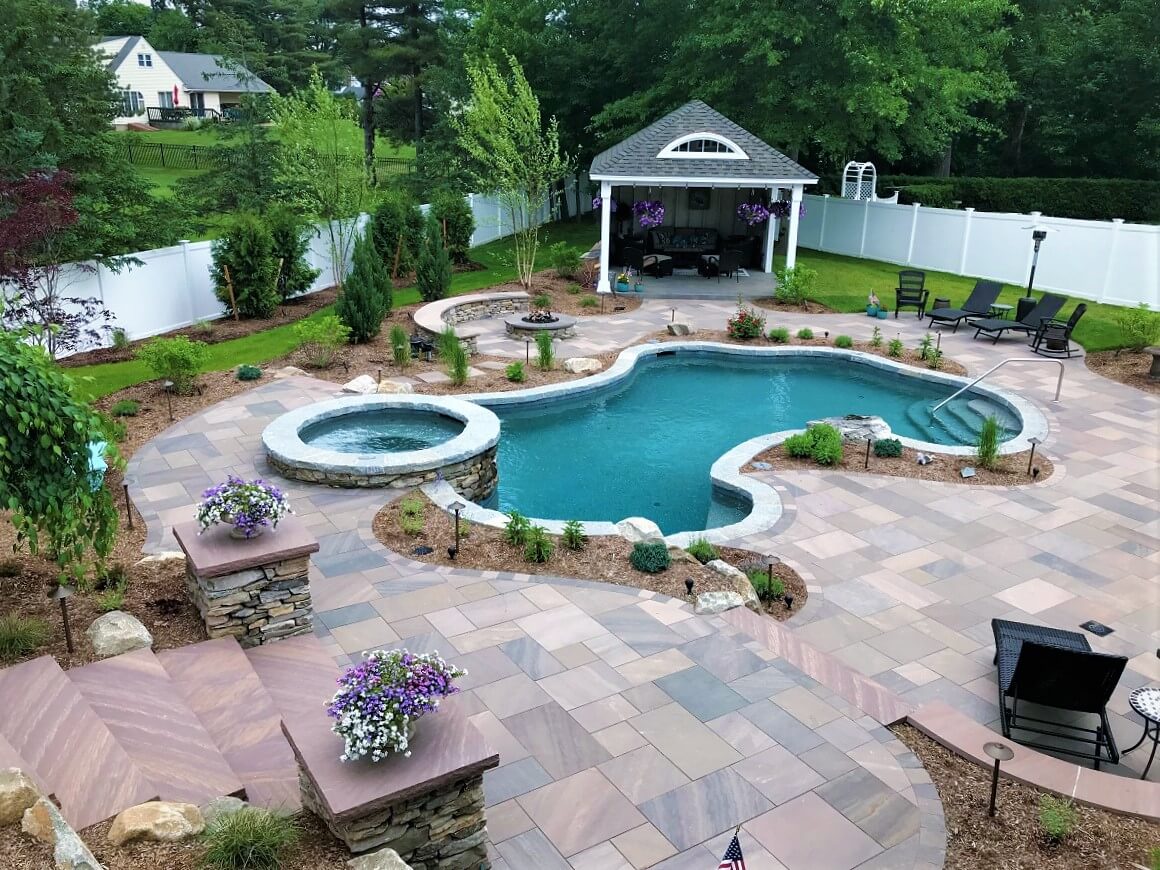What is a Saltwater Pool?
When building a new pool, one of the key decisions you’ll face is whether to opt for a traditional chlorine pool or a saltwater pool. In the past several years, saltwater pools have surged in popularity, becoming the option of choice for numerous homeowners and at many hotels and resorts. Despite their popularity, however, there are still a lot of misconceptions about saltwater pools. The following frequently asked questions will offer some insight into how they work and what they offer.
How do saltwater pools work?
A common myth about saltwater pools is that they do not contain chlorine. While you don’t add chlorine tablets as you would with a traditional pool, saltwater pools are cleaned using a filtration system called a salt chlorine generator. This system uses electricity to transform salt into chlorine, which then sanitizes the water. However, saltwater pools generally contain much less chlorine and the chemical levels tend to be more stable, as the system only produces chlorine as needed. As with a traditional pool, it’s essential to test the chemical levels in a saltwater pool regularly to ensure that it is safe for swimming.
Are saltwater pools as salty as the ocean?
No. You don’t need to worry about getting a mouthful of pungent “ocean” water when swimming in saltwater pools—they contain approximately ten times less salt than the ocean, and the water has a very mild salty taste.
Are saltwater pools expensive?
While saltwater pools carry a higher upfront cost—generally, they are about $2,500 to $4,000 more than traditional pools—they may save you money over time since you won’t have to purchase chlorine to add to the pool.
What are the benefits of saltwater pools?
Saltwater pools offer several advantages stemming from the fact that they are not as heavily chlorinated as traditional pools. For example:
- Many people find saltwater pools less irritating to their skin, hair, eyes, and bathing suits. In addition, saltwater pools may not have the strong chlorine smell that traditional pools have, which is believed to make them more suitable for swimmers with asthma or allergies.
- Saltwater pools are easier to maintain since you don’t need to add chlorine on a regular basis—which can help you save time and money while avoiding the risks associated with handling chlorine. However, as mentioned above, it’s still important to routinely check chemical levels.
- The water in saltwater pools has a softer, smoother feel, which many swimmers find more enjoyable.
At Aqua Pool & Patio, we offer both saltwater and traditional systems for our custom gunite pools, and our team can help you determine which is the best choice for you. Call us today at (860) 623-9886 to learn more or schedule a consultation!




